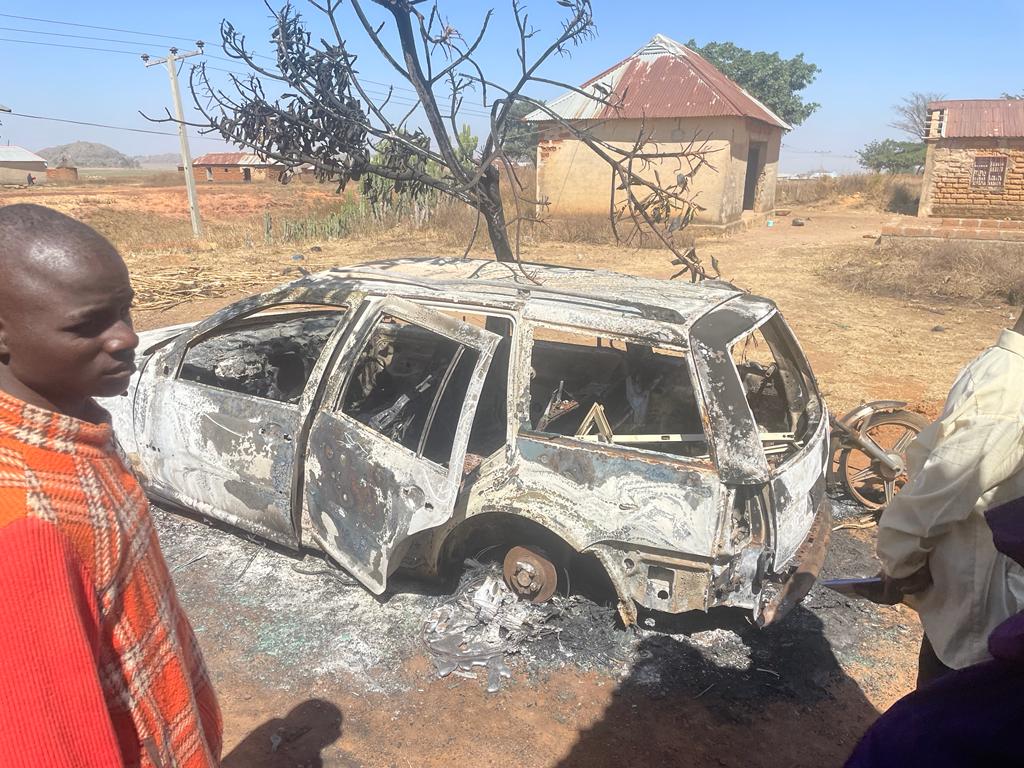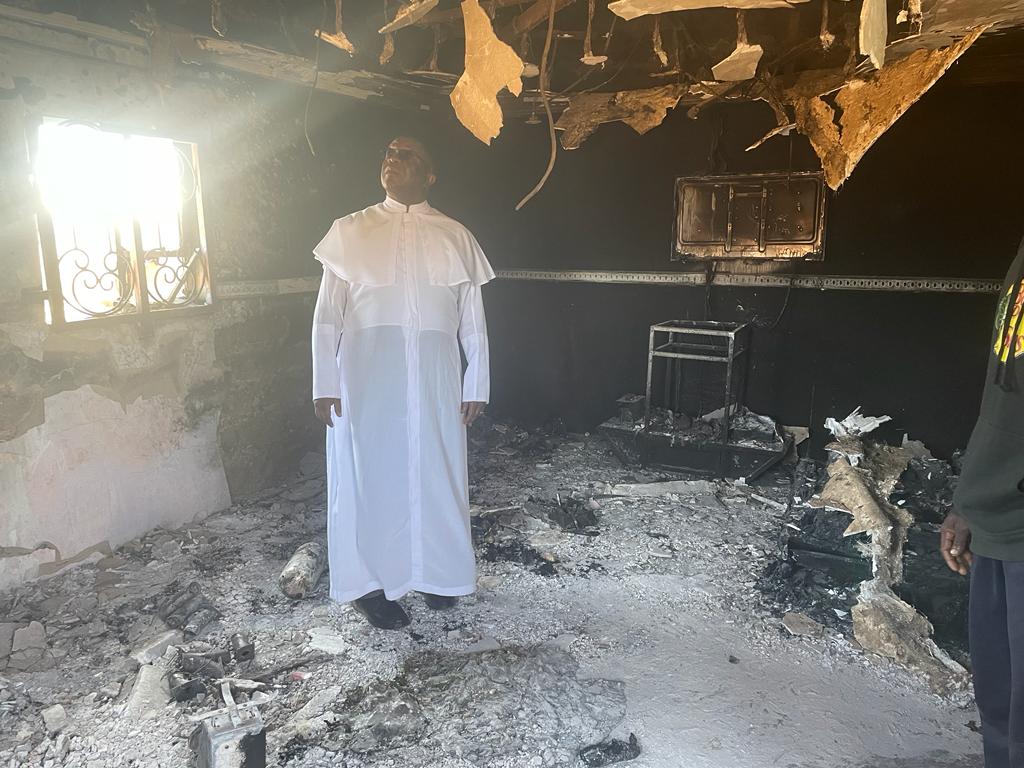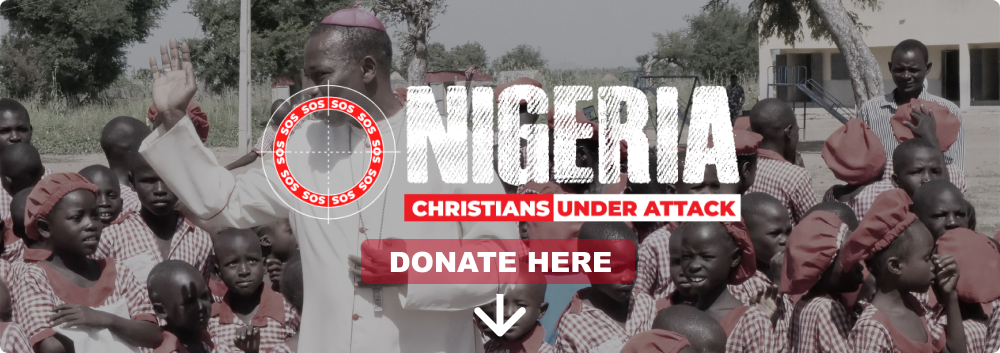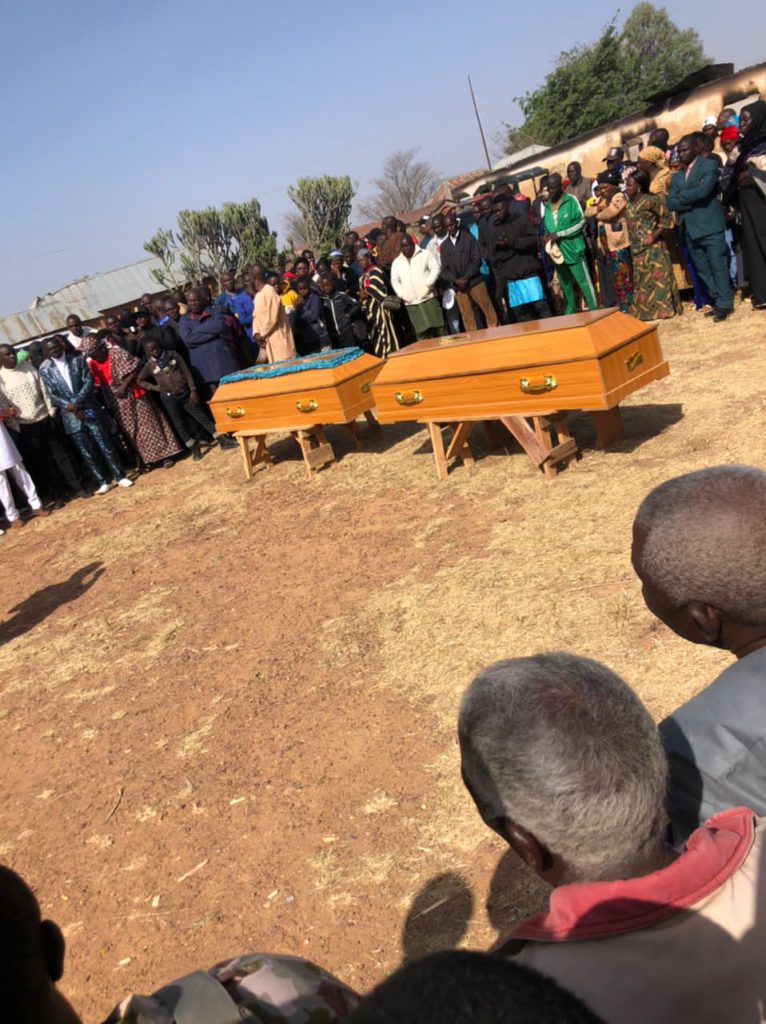Yet another attack by Muslim Fulani bandits against settled communities has left Christians displaced and in despair with the lack of security and government response.
Terrorists caused death and destruction during the Christmas holidays among the Christian communities in Bokkos, Barkin Ladi, and Mangu (but Bokkos was the epicentre) Plateau State, central Nigeria. Close to 170 people have been confirmed dead, and the death toll is likely to still rise. Fr Andrew Dewan is the Director of Communications of Pankshin Diocese, where the attacks took place, and he spoke to Aid to the Church in Need about what took place in a series of coordinated attacks on 26 villages that began on 23 December and only ended on 26 December.
Initial reports point to around 170 people killed in these latest episodes of violence. Do you confirm these numbers?
I do. The statistics of the fatalities so far point to 164 or 167, but the number is definitely going to rise, because there are still many people in hospitals, with varying degrees of injuries and wounds.

Are the victims all Christians, or were the attacks indiscriminate?
The unprovoked attacks were well coordinated, and deliberate, targeting communities that were Christians specifically. I live in this same community, and can confirm that in the areas where these attacks took place the victims are 100% Christians, except for a few. But even at that, the non-Christians were isolated.
You speak of well-coordinated attacks. How did the terrorists operate?
This violence began in a rural community named Mushu, at night. About 18 people were killed and several others were injured.
Just when people were trying to come to terms with what had happed at Mushu, Tudun Mazat was attacked. The attackers stormed the community in the evening, just about the time most people were eating their dinner, and those who had finished were visiting friends. Before people could raise alarm, the bandits were already upon them. People were summarily shot and killed, houses and corn that had been harvested were set ablaze, churches and clinics were also set on fire. I had gone to this same community for Christmas Mass for the Catholic community that morning. From Tudun Mazat, the Fulani terrorists descended on Maiyanga, killing thirteen. Around 20 other communities were attacked that night.

Do you know the identity of the attackers, and their motives?
Survivors and eye witnesses were categorical in saying that they are clearly Fulani militia, or mercenaries, as some reports have also alleged. In communities where the Christians live side by side with Fulanis, not one Fulani person was affected, and no Fulani houses were burned, so there is no doubt that the attackers were Fulanis.
As for the motive, I am not sure, but it may be connected with attacks that took place in the neighbouring local government, called Mangu. The Fulanis attacked the communities there, and they had expected the Christians in Bokkos area, especially those communities bordering Mangu, to allow them access, but they refused. So, I think they came back to attack the communities because of that.
These attacks have a long history. The Fulani pastoralists, or herders, are originally from the Sahel region, the northern corridor of Africa, that was once habitable, and had grazing land for the pastoralists, but which is desert now. So, there has been a southward movement by the Fulanis, and their cattle, to greener pastures in the Middle Belt area, where these attacks have been taking place continuously, because to be able to gain unfettered access to these grazing fields, they would have to dispossess the natives, who are Christians.
It is a competition for land. The natives will sometimes prevent the Fulanis, if they clearly see they are out to go and attack the communities, and they pay that back by attacking them, so I think that is what has happened in this instance.
Did the fact that it was Christmas time also contribute, or was that a coincidence?
For those who believe that this conflict is not religious, this latest attack proves that it is clearly a religious conflict. The fact that it took place at Christmas, and the deliberate targeting of Christians in a mixed community, where Muslims are not attacked, clearly bears all the hallmarks of a religious conflict. I know that not everybody would like to admit that, but for me, having been on the ground, observing and writing about this, it bears the hallmarks of a religious conflict.
So, it is deliberate, and it is also symbolic from the point of view of timing of the attacks (Christmas period). Before now there had been rumours in the main stream and social media that the Fulanis were going to attack, and that the whole aim was to inflict pain and maximum destruction on the Christians. A lot of us had dismissed it, but the attention of the security forces was drawn, though, as always, nothing was done until this tragedy occurred.
Victims in these situations in Nigeria often complain of a lack of response from security forces. Do you have the same complaint?
I do. I have read reports that suggest that the military and the security forces are complicit in this, because if they were really up to their game, they should have picked up intelligence, because as I said, there had been rumours, including the times they were going to attack. That should have put the security on red alert, but as often they were caught unawares.
What have the political leaders done?
We are dealing with absentee leaders. Our leaders don’t live in the community, so they don’t understand the problems that are bothering the people, and we are getting to the point where if something is not done drastically to deal with this gathering storm, the tendency for people to take the law into their hands is quite high.
Many people must be turning to you for solace and spiritual support. How important is your role for the community now?
It is quite challenging at this time, because we are dealing with a huge deluge of internally displaced. Christians from the villages are streaming into the city centres for shelter, for food and for clothing, at a time when the weather is very cold, comparable to the weather in Europe at this time. Due to the lack of an official response, the churches are often left to respond to such emergencies. IDPs in their hundreds are seen in the Church compounds, and the churches have to source for food, clothing, and financial resources to intervene in these emergencies. The situation at hand is, indeed, dire. Although some few Christians who are disillusioned by the spade of these unprovoked attacks are tempted to return to African traditional methods (syncretism) to respond to these emergencies, the vast majority draw inspiration from the scriptures, the lives of the early Church and saints at times like this.



